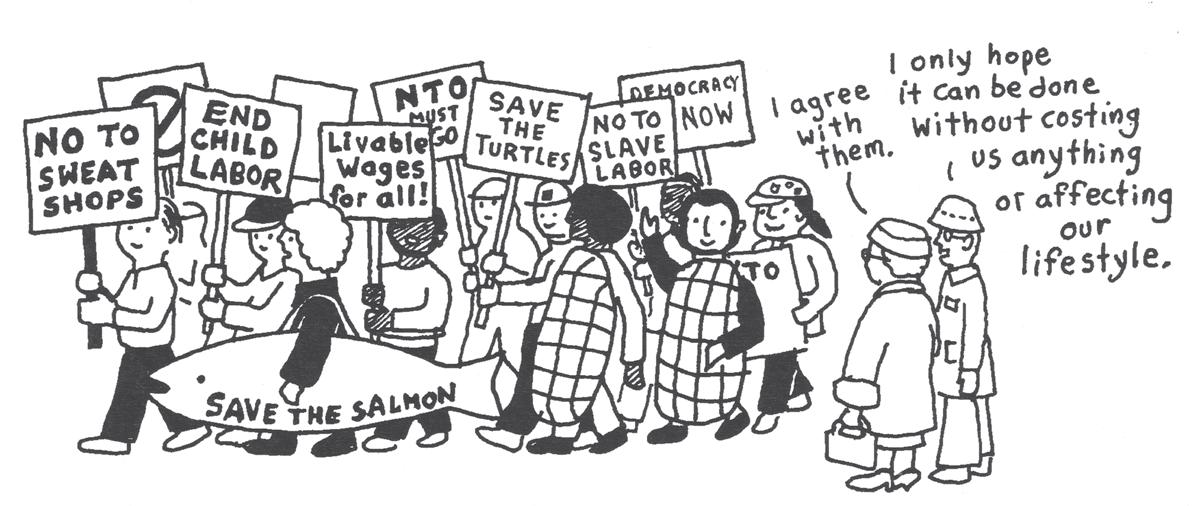CATHOLIC WORKER
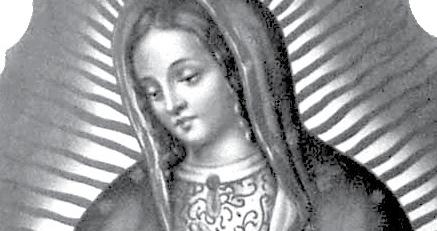
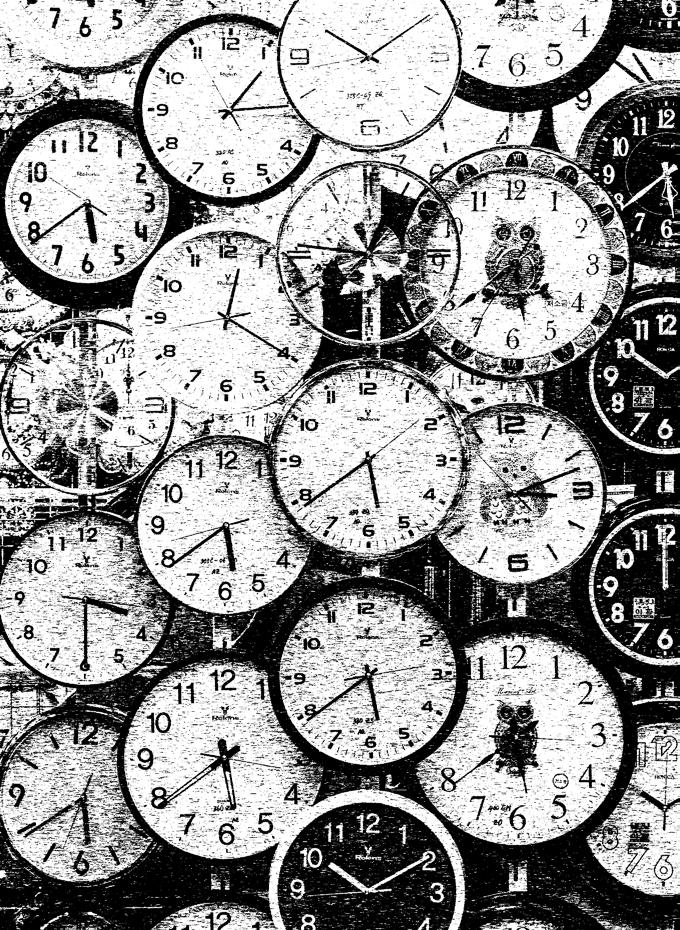



Artist: Daniel Erlander
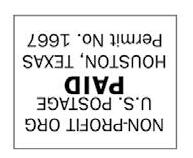
By Louise Zwick
When I became a Catholic many years ago, somehow I got the idea that earthly concerns were not very important in the light of eternity. My instruction in the faith did not teach that, but the very idea of the transcendent reality of God and life someday in the beatific vision led my mind to contemplate this idea.
I soon came down to earth when Mark Zwick, who brought me to the faith, asked me to begin visiting desperately poor families in the inner-city neighborhood there in Youngstown. I began to learn more about everyday realities and to see that my new faith related to the challenging situations so many people face. My understanding of the importance of Matthew 25:31 and the following verses in the Bible (Works of Mercy toward the Lord disguised in the poor and the stranger) took root and has grown over the years.
I became aware that the Lord does indeed ask us to care about what happens here and now in this actual present world. I understood that followers of the Nazarene are expected to do the Father’s will, as he taught us in the Lord’s Prayer, on earth as it is in heaven. It cannot be the Father’s will that we treat others as if they had no dignity and that our business, industrial, and technological policies contribute to slowly destroying the earth, our air, water, and climate.
According to a new article in the journal Modern Theology, the unconcern about the degradation of our environment and even the lack of concern for the dignity of persons and their work may be linked to an overemphasis in Christian eschatology on individual salvation in the Kingdom of God “someday” in the future, which includes our death, the Eschaton, the end of this world.
The author of the article, Gunnar Gjermundsen, suggests that placing all hope in a future heaven is rooted in a misinterpretation of the Gospel. He argues with St. Maximus the Confessor, one of the Fathers of the Church, that “the Christian is not to wait for a cataclysmic in-breaking in the historical future.” Maximus presents an alternative eschatology and an understanding of time and eternity in which the fulfillment of time and the coming of the Kingdom “are understood to be inseparable from the transformation, conversion of heart, of the individual soul—begun, if not completed, in this very life.”
In his article Gjermundsen quotes Norman Wirzba, who contends that many believers see their Christianity as a “massive escape project from location Earth, with the potential effect of coming to regard the planet as a mere backdrop for the soul’s redemptive drama.”
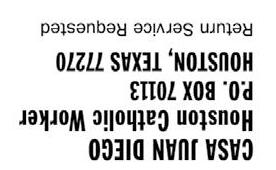
After all, why worry about terrible emissions and chemicals harming people and the earth, when this world is only temporary and the end may be coming soon? Why bother reading the encyclical Laudato Si? Why bother with better conditions for the poorest of the earth? contiued page 8
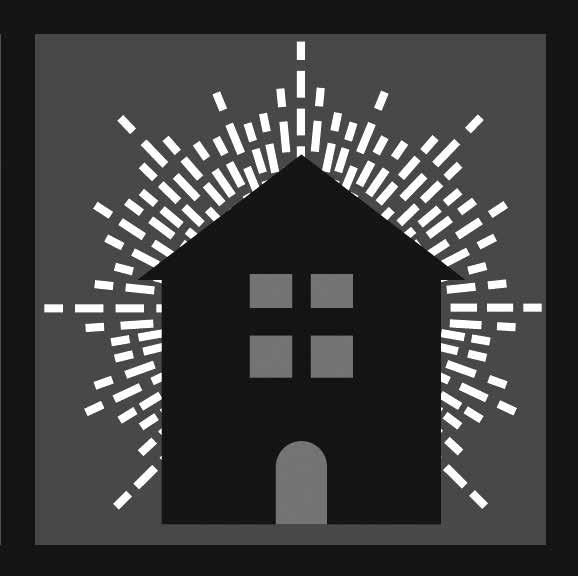
Every day is Thanksgiving Day at Casa Juan Diego. Everywhere we turn we are confronted with the need of Thanksgiving.
Casa Juan Diego is a modern miracle. Its budget would be many millions of dollars if all the services of Casa Juan Diego had to be paid — for housing so many and all that goes with it, food, clothing, building repairs, teachers, doctors, not to mention the full-time Catholic Worker volunteers and many part-time volunteers.
Recently a friend wondered about our budget and our ability to provide so many services without being plunged into government or official archdiocesan funding. He was surprised, but so are we!
We seem to have so much more providence than we deserve. Being the recipient of so much generosity is a humbling experience and enough to make a believer of anyone. Mark Zwick sometimes asked friends of the house, “Why are people so generous?” They answered, “Mark, it’s because all monies at Casa Juan Diego go to the service of the poor and none goes into salaries.”
Clearly the existence of Casa Juan Diego does not depend on one person or several persons. It is the work of many people making many contributions. We can only hope that the individuals and the parishes who support us constantly will continue to do so.
Right now we want to say, many, many thanks. Happy Thanksgiving every day of the year.
Gratefully in the Lord, Louise Zwick and all at Casa Juan Diego
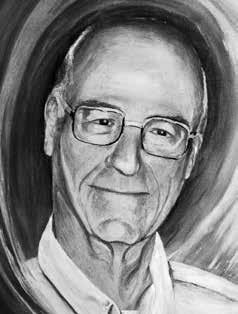
Casa Juan Diego was founded in 1980, following the Catholic Worker model of Dorothy Day and Peter Maurin, to serve immigrants and refugees and the poor. From one small house it has grown to ten houses. Casa Juan Diego publishes a newspaper, the Houston Catholic Worker, four times a year to share the values of the Catholic Worker movement and the stories of the immigrants and refugees uprooted by the realities of the global economy.
• Food Donation Central Office: 4818 Rose, Houston, TX 77007
• Women’s House of Hospitality: Hospitality and services for immigrant women and children
• Assistance to paralyzed or seriously ill immigrants living in the community.
Casa Don Marcos Men’s House: For refugee men new to the country.
Casa Don Bosco: For sick and wounded men.
• Casa Maria Social Service Center and Medical Clinic: 6101 Edgemoor, Houston, TX 77081
Casa Juan Diego Medical Clinic
• Food Distribution Center: 4818 Rose, Houston, TX 77007
• Liturgy: In Spanish Wednesdays at 7:00 p.m. 4811 Lillian at Shepherd
Funding: Casa Juan Diego is funded by voluntary contributions.
Houston Catholic Worker Vol. XLV, No. 1
EDITORS Louise Zwick & Susan Gallagher
TRANSLATORS Blanca Flores, Sofía Rubio, Lupita Guzman
CATHOLIC WORKERS Dawn McCarty, Marie Abernethy
Meg Thompson, Nova Lucero, Priscilla Acuña-Mena, Kevin Mcleod Nathan O’Halloran, Joachim Zwick, Louise Zwick
TECHNICAL DIRECTOR Joachim Zwick
DESIGN Bea Garcia Castillo
CIRCULATION Stephen Lucas
AYUDANTES TEAM........................... Wilmer Salazar, Ramiro Rescalvo
Julian Juárez, Daniel De la Garza, Edilson Herrera, Zeferino Andrade
Jose Bollar, Frowan Zambrano, Oscar Rueda, Miguel Rojas
PERMANENT SUPPORT GROUP................ Louise Zwick, Stephen Lucas
Dawn McCarty, Andy Durham, Betsy Escobar, Kent Keith
Julia Gallagher, Monica Creixell, Pam Janks
Monica Hatcher, Joachim Zwick
VOLUNTEER DOCTORS................................. Drs. John Butler, Yu Wah
Wm. Lindsey, Laura Porterfield, Alfredo Viteri
Darío Zuñiga, Roseanne Popp, CCVI, Enrique Batres
Homero Anchondo, Deepa Iyengar, Mohammed Zare
Maya Mayekar, Joan Killen, Stella Fitzgibbons
VOLUNTEER DENTISTS.................Drs. Justin Seaman, Michael Morris
Peter Gambertoglio, Mercedes Berger, Jose Lopez
Maged Shokralla, Florence Zare
CASA MARIA.....................................Juliana Zapata and Manuel Soto

Casa Juan Diego
P.O.Box 70113 | Houston, TX 77270 (713) 869-7376
info@cjd.org | www.cjd.org
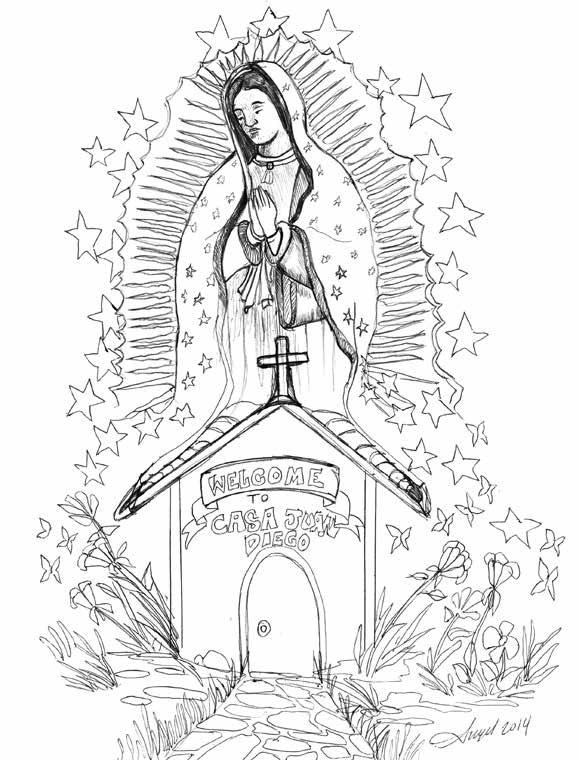
Oh my God, where am I going? What will become of me?
That’s what I asked myself as I read the address 4818 Rose Street on the piece of paper I had in my hand. But where would a 20-year-old girl go who had to leave everything and immigrate from her country, a girl who when she looked at her past could only see abuse, sexual abuse, her suffering and pain? Where would a girl go who was alone on the street, with tangled hair, dirty clothes, very cold and a stomach growling with hunger because the only thing that kept her stable were the potatoes she grabbed from the leftovers that someone forgot in the trash? 4818 Rose Street was my only option, I needed to go to that place. And that’s what I did, I got to that place, I got to 4818 Rose Street “Juan Diego’s House” I could read on the front of the door. Trembling with fear and with a lot of insecurity, I rang the bell and a beautiful white-haired lady opened the door. She was the first angel to receive me. Lord, may your will be done — that’s what I said in my heart as I entered that house. You know that the will of the Lord is good and perfect? In that house I found life, I found hope, love, I found the Kingdom of God on earth. What used to scare me became my safe place.Casa Juan Diego is what I can call home. I am alive there, surrounded by people I can call family, and like a friend transforming into a butterfly, I have discovered what my identity is. Light for the world, salt for the earth, a living word. Image of God on earth. That is what the Lord has created us to be and it is exactly what I have been able to see at 4818 Rose Street — Casa Juan Diego. I am Catalina, now 21 years old and that is my story.


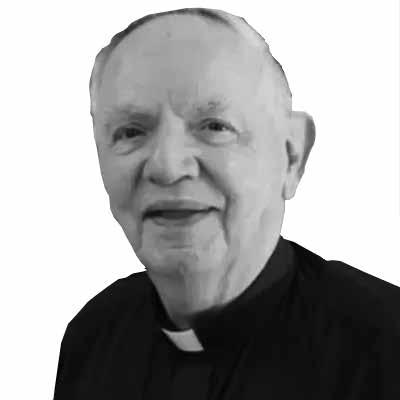

Friends at Casa Juan Diego, As usual, the recent edition of the Houston Catholic Worker had articles that informed and inspired me, especially those on Peter Maurin and Dorothy Day. Thank you! Their faith, courage, and persistence – and your service to the poor in their spirit are hope in our sorely troubled world.
John Langston, Pasadena, Texas
Dear Louise and all, always look forward to the arrival of your newspaper. It inspires me to continue my work with the poor and suffering in our community I just wanted you to know the inspiration you provide those of us far away.
Patrick St. George, Lansing, Michigan
Dear Louise and all at Casa Juan Diego, continue to be amazed and uplifted by the work you do at Casa Juan Diego. Your example is truly a light to the world.
Carol Ashton, Blessing, Texas (Carol was the first doctor to see patients at Casa Juan Diego in 1981 in our first old building.)
To All of You at Casa Juan Diego, Thank you for all that you do to help our immigrants We read their stories of courage, faith, and determination to make a better life for themselves and their families. Your work makes me proud to be a Catholic.
Glenda and Pat Carriere, Humble, Texas
We are bidding farewell to Fr. Rafael Dávila, M.M. who has celebrated Mass each month at Casa Juan Diego for at least 25 years. We are grateful for his continued presence and spiritual inspiration for the guests of Casa Juan Diego, where he has encouraged those who have suffered much in their home countries and on their journey to the United States. In his homilies, Father Dávila has affirmed the dignity of the refugees and assured them of God’s love for them, knowing how much they can contribute to life and work in the United States, helping to reconstruct a better social order. He has given them hope.
By Michael Baxter
Last fall, political pundits of various stripes informed us that the upcoming 2024 election would be the most important one of our lifetimes. Never mind that we have been told this every presidential election year in this century—this time it was really true. Many of us heeded the warning, absorbed ourselves in the promises of the political personalities and pundits, and in the aftermath, we are learning once again, that electoral politics is at the same time invigorating and dissipating. And it distracts from the real point of our lives which lies beyond politics—at least politics as conventionally understood. To focus on that point, and to gain a needed transcendent perspective on U.S. politics, there may be no better figure than Dorothy Day, co-founder and unofficial matriarch of the Catholic Worker and a Vatican-approved Servant of God, who had the habit of looking at our earthly affairs, as she would say, in the light of eternity.
To get a sense of Dorothy Day’s view of electoral politics, we should take note of the entry in her personal diary for Wednesday, November 4, 1964, the day after election day that year, about what had just transpired: “Johnson elected.” That was it. Two matter-offact words. Nothing more.
She could have written plenty. It was one of the largest landslide presidential elections in US political history. It supposedly spelled the end of Goldwater’s brand of hard-right, pronuke, political conservatism. It promised to extend the pragmatic liberalism of Kennedy’s New Frontier by building what Johnson had called earlier that year a “Great Society . . . where no child will go unfed, and no youngster will go unschooled.” As a journalist deeply concerned about justice, peace, and world affairs, Dorothy could have written effusively about LBJ’s effort to defeat poverty. But she jotted down none of this. Why was she so terse about the 1964 election?
The answer lies in Dorthy Day’s longstanding, deeply held beliefs about elections and politics, beliefs that she acquired as a young journalist in New York working for two publications, The Call, a socialist daily paper, then later for a monthly periodical called The Masses. Both periodicals were borne out of “the Old Left,” a label referring to a movement in the early twentieth century dedicated to Marxist diagnoses of the injustices in capitalist society and how these can be overcome by revolution and a transition into a classless society. Although this vision may seem outmoded and dangerous these days, it was embraced by leading intellectuals and journalists around the time of World War I, such as Floyd Dell, Max Eastman, Jack Reed, Emma Goldman, all of whom Dorothy knew. She even met Leon Trotsky who she interviewed for The Call in January 1917, not long before he left New York for Russia to be a part of the revolutionary upheaval there on the front lines of the war. Capturing the historical drama of that spring, Dorothy recalled Trotsky telling a crowd at Cooper Union, “Revolution is brewing in the trenches.” When the Revolution came to pass in Russia the next autumn, Dorothy and her crowd—her comrades, she may have said—were enthralled. She forever waxed eloquent about those youthful days when, so they thought, great things were coming to pass in the world. The old order of Czar was being overthrown. A new order was being established, one that that would put an end to the drudgery and deaths of millions of workers and the poor. In Dorothy’s heart and mind, the heroes of the Old Left were the saints and martyrs of today, living for one another, laying down their lives for workers and the poor. And not only in Russia, but in the United States. Eugene Debs, Big Bill Haywood, Elizabeth Gurley Flynn, many others: they all made a deep impression on Dorothy in these early journalistic years. Dorothy wrote about all this at length in The Long Loneliness, where she also took the time to explain her view among the different intellectual viewpoints that were bandied about in her crowd. She didn’t go in much for the dogmatic Marxists, who believed in waiting for the contradictions of capitalism to play out before launching the Revolution. Nor did she find allies with reform-minded socialists who believed in obtaining a partial measure of justice for workers through mainstream unions, political parties, and the ballot box. Instead, she sided with the radicals of the Industrial Workers of the World, the IWW or “Wobblies,” who opted for direct action to establish the revolutionary society here and now. For Dorothy, this direct-action approach was the most concrete, practical way to fight injustice and forge genuine community.
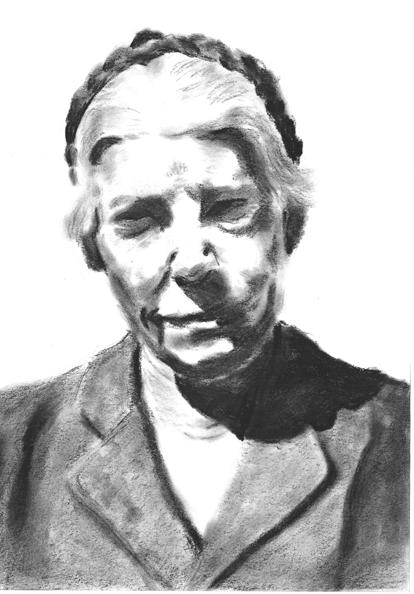
Artist:
Dorothy Day’s anarchism helps us guard against...
the partisan captivity of the Church. Catholics regularly decry polarization in the Church, but few see that the problem stems from our near total absorption in U.S. political culture.
In short, Dorothy was an anarchist. And not only in her youthful pre-conversion days of the Old Left. She remained an anarchist after her conversion and entry into the Church. Not a bomb-throwing anarchist bent on tearing down society through revolutionary violence, of course. She had become enamored with the Christ of the gospels, teaching us to love our enemies, walking the way of the nonviolent cross, and bestowing on the apostles His gift of peace. She was a Christian, indeed a Catholic anarchist. Thanks to Peter Maurin, she came to see how the Church’s social teaching dovetails implicitly with the IWW’s anarchist vision. The Wobbly slogan, “An injury to one is an injury to all,” can be transformed into our duty to fend for the well-being of all people who are potential members of the Mystical Body of Christ. And the Wobbly adage, “A new society within shell of the old,” can serve as the Catholic Worker’s mission to a world disordered by injustice and needing communities formed by what Dorothy often called “a revolution of the heart.”
In Dorothy’s Catholic anarchist vision, a key part of the collapsing shell of the old society was the state. From her youth she had maintained that the state is a political tool serving the interests of the upper classes, whether it be a monarchy, an autocracy, or even a democracy such as the United States. At the height of the Cold War, Dorothy riled up the readers of The Long Loneliness and of her columns in The Catholic Worker by criticizing the United States for neglecting workers’ rights and the poor at home and for waging imperialist wars abroad. And as always, she matched creed with deed. She refused to pay taxes. She never sought or accepted government money to support the Catholic Worker. She protested U.S. warmaking and was jailed for it several times. And she did not vote.
All of this explains why Dorothy was nonplussed by LBJ’s election back in 1964. As she saw it, electoral politics was not the true path to social transformation, for there exists a chronic disconnect between pulling the lever in the voting booth and pulling the levers of the machinery of the state for the sake of justice and peace. And no amount of investing voting with mystical significance—it is “our sacred duty”—can change it. But if this is true, how do we look at elections, including the most recent one? And how do we chart a path for whatever lies ahead?
I want to suggest three things. First, Dorothy’s anarchism alerts us as to how language is used around election time (which has become
virtually all the time) to create the illusion that U.S. politics is based on popular consent. Think of such cliches as “the will of the people,” “free and fair elections,” and “our democracy” as in “we need to protect our democracy.” Such phrases are part of what Noam Chomsky called “the manufacture of consent,” a brilliant, matter-offact concept for describing how U.S. politics is presented to us as the result of our choice when in reality our perceptions and desires are already manipulated in manifold and subtle ways by party operatives, advertising agents, management consultants, government bureaucrats, big donors, and television newscasters who welcome into their studios “public intellectuals” to explain the “public affairs” shaping the “public life” of “our Republic.” In other words, we are constantly bombarded with “consensus-fabricating syntax,” as Christopher Hitchens once noted in a book review aptly titled “the ‘we’ fallacy.” His point was that we should be on guard against overusing or misusing the first-person plural pronoun. Stanley Hauerwas has often made much the same point, in a theological and ecclesial sense, by asking, who is the “we”? His point is that there is an identity choice to be made: Is it we Americans or we Christians?
This brings up the second thing Dorothy Day’s anarchism helps us guard against, namely, the partisan captivity of the Church. Catholics regularly decry polarization in the Church, but few see that the problem stems from our near total absorption in U.S. political culture. The absorption process has been underway for a century, but it has accelerated and deepened in the past twentyfive years during which Catholics have roughly split in every national election, though recently they lean more rightward. Until recently, the issues have been sliced and diced along familiar lines: Catholic Democrats are strong on economic justice, racial justice, peace, immigration, and the environment; while conservative Catholics are solid on the life issues, the traditional family, and business. Lately, these alignments have shifted, with Republicans vying for the working class, claiming the mantle of peace, and getting increasingly harsh on immigration. But in any case, extremism has overrun both parties. Thus, Democrats now support abortion with few or no limits and Republicans are planning mass deportations of immigrants. As a result, claims that one party or the other adequately stands for what the Catholic Church teaches have become increasingly implausible. This may seem like an utterly disastrous development for Catholics
on both sides of the nation’s widening political divide—that is, for Catholics who fantasized in 2020 that a democratic president would return the Church to its rightful role as the shaper of our “public discourse,” and for those who see the incoming Republican president as the latest opportunity for seizing yet another “Catholic moment.” But the present implausibility of partisan politics actually provides an opening for Catholics who, like Dorothy, do not see consonance but conflict between being American and Catholic, an opening for a more radical approach to what Pope Pius XI called “social reconstruction.”
The third point concerns this more radical, reconstructive approach. As Peter and Dorothy understood it, the word “radical” meant, not just opposing the state, but also going down to the roots of society and taking personal responsibility for social change. This called for translating love into action, which in turn required community. The idea was to forego the politics of the nation-state in order to pursue local forms of community-based work: houses of hospitality and farms, of course, and credit unions, labor unions, neighborhood associations, educational associations, parish pantries, soup kitchens, settlement houses—all kinds of charitable works. With Catholics devoting less time, energy, and money to conventional nation-state politics in the years to come, there will be more time, energy, and money to expand our own charitable works. Dorothy Day set her sights beyond politics and lived for people beyond politics. She set her sights on God and lived for the people Christ brought to her, the hungry, the thirsty, the sick and imprisoned, the stranger. In the years to come, Christ will continue bringing the poor to us as well—if we receive the grace of setting our sights beyond politics.
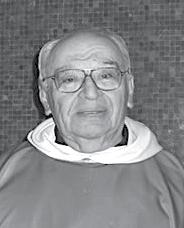
By Nathan O’Halloran
When arrived at the University of Notre Dame to begin my Ph.D. in Theology, the very first course I took was with the Peruvian father of liberation theology Gustavo Gutiérrez. knew him by reputation since I had read his groundbreaking first book, A Theology of Liberation, and I was very excited to meet him. Although quite short—less than five feet tall and with sort of a rolling lopsided walk—he was a theological giant.
Gutiérrez passed away on October 22, 2024. The apparent irony of the date of his death—the feast day of Saint Pope John Paul II—is not lost on me. During most of John Paul II’s papacy Joseph Ratzinger was prefect for the Congregation for the Doctrine of the Faith (now the Dicastery) and, while prefect, issued two instructions on liberation theology, in 1984 and 1986, both critical of some of its aspects. And yet as Gutiérrez told us in class: “This was not a moment of condemnation for liberation theology. It was a time when we had to prove our reasons to the CDF” (my paraphrased class notes).
And prove their reasons they did. While theology has always been concerned with the poor and their plight, what distinguishes liberation theology is that it tries to do theology from the perspective of the poor. Gutiérrez taught us in class that there is a difference between a theological source and a theological perspective. Theology finds its enduring source in Divine Revelation: in Scripture, Tradition, and the sacramental and liturgical life of the Church. But theology draws its perspectives from places as diverse as Greek philosophy, monastic life, and yes, even aspects of Marxism. What liberation theologians did was spend time praying, speaking, and even theologizing with the poor in order to hear their perspective. New perspectives bring new questions to theology’s enduring sources, and when new questions are asked, new answers emerge.
Eventually liberation theology would enter the mainstream of the Church. In 2007 Pope Benedict XVI himself told the bishops of Latin America and the Caribbean gathered at Aparecida: “The preferential option for the poor is implicit in the Christological faith in the God who became poor for us, so as to enrich us with his poverty.” Pope Benedict XVI also named Gerhard Müller as his
prefect for the Congregation of the Doctrine of the Faith, a man who had written two books with Gutiérrez and who was deeply committed as a professor of theology to spending his summers in Peru teaching in a poor indigenous seminary.
As Müller himself reminds us, “I myself, strongly influenced by Gutiérrez, was appointed prefect of the CDF by Benedict XVI in 2012.” Liberation theology had finally “arrived”.
Or perhaps should say: Gustavo Gutiérrez’s version of liberation theology had arrived. For there is no such thing as “Liberation Theology” per se.
There are liberation theologies, and many different versions have only proliferated over the years.
Some forms of liberation theology that engaged in Marxist analysis worried the Vatican. But Gutiérrez always remained a man of the Church and resolutely focused on doing theology from the perspective of the poor.
I would like to reflect on this component of Gutiérrez’s life because it maps closely onto that of another theologian often mentioned in this paper, Henri de Lubac. Matthew Levering, a theologian I greatly respect, recently wrote about an important question: What distinguishes a theology of dissent that characterized so much of post-conciliar American theology from a theology of resistancewithin-receptivity? What is the distinction, Levering asks, between the corrosive doctrinal dissent of many American theologians in the 60’s and 70’s and the resistance-within-receptivity of Henri de Lubac during the years when he was silenced by the Church in the 1950s? Levering grants that there are times when a receptive resistance is required from Catholics to some forms of magisterial teaching—although never to infallible or definitively taught magisterial teachings. But de Lubac, Levering notes, did “resist the Magisterium in his scholarly work when he perceived the pope to be repressing a legitimate movement or an enduring perspective in theology. He understood his resistance to be done in accordance with the truth of Mother Church, never in opposition to the Church’s teaching.” What distinguished de Lubac was that he always “refused to react strongly, in a public way” even as he recognized that “Mother Church, as represented by human agents, is capable of some error in magisterial teaching.”
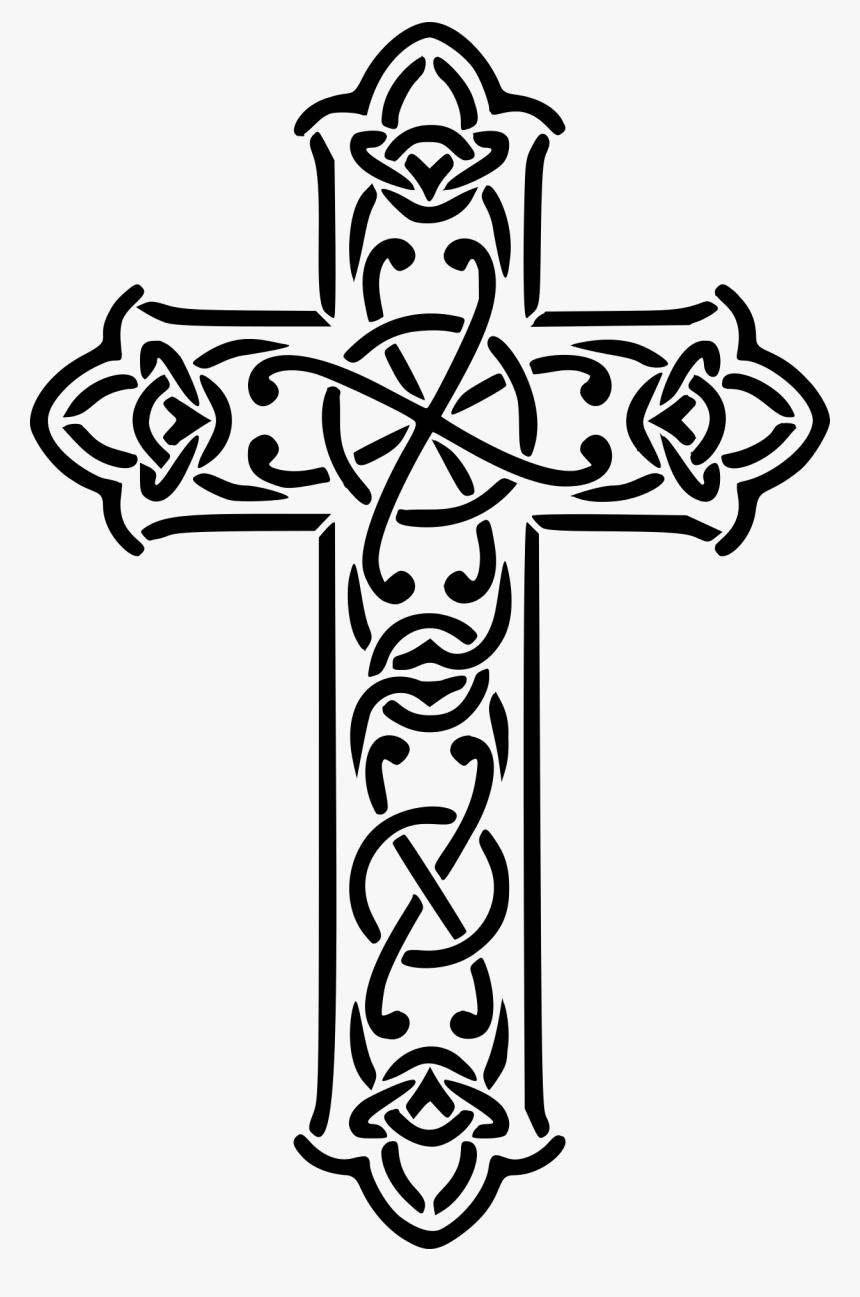
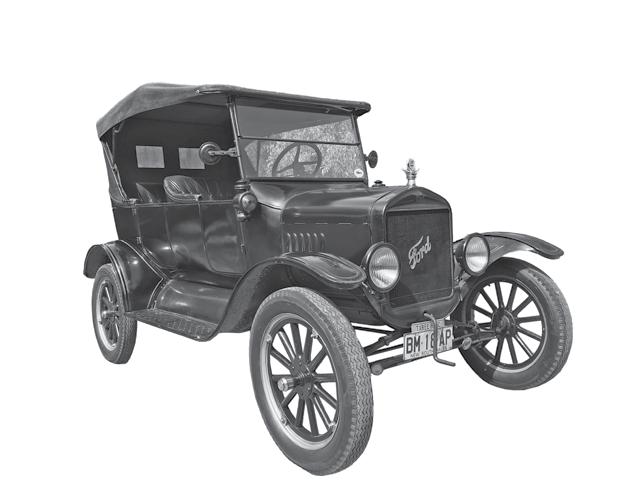
As I read Levering’s distinction between dissent and resistance-within-receptivity and his description of de Lubac, I could not help but think of Gutiérrez—along with Clodovis Boff and several others too—in contrast to other acclaimed dissenting liberation theologians. Like de Lubac, Gutiérrez too resisted the Magisterium in his scholarly work when he perceived the Vatican investigating whether liberation theology was “a legitimate movement or an enduring perspective in theology.” But unlike some other well-known liberation theologians, Gutiérrez never engaged in doctrinal dissent, even as he engaged in a certain amount of resistance. He was, like de Lubac, a homo catholicus, a man of the Church. And eventually, like de Lubac, his perspective on authentic liberation theology was accepted. Authentic liberation theology draws its perspective from the life of the poor and from listening to the poor reflect on the meaning of the Gospel in their lives. As Gutiérrez listened to the poor as they read and prayed with Scripture, bringing their situation, their experiences, and their sufferings to Scripture, he heard something new and vital. He saw the importance of the perspective of the poor for the life of the Church as a whole. In particular, he heard the importance of what they had to say about Jesus’ offer of liberation. Authentic liberation theology is neither “liberal” nor “conservative,” though it is often aligned with the liberal theological establishment. My grandpa (hardly a liberal) was an ardent reader of liberation theologians. Liberation theologians recognize that it is easy to become deaf to the perspective of the poor and working classes. Authentic liberation theology challenges everyone in the Church to spend time listening to the poor as they read and interpret the Word of God.
Pope Francis forcefully teaches in Evangelii Gaudium §201: “No one must say that they cannot be close to the poor because their own lifestyle demands more attention to other areas. This is an excuse commonly heard in academic, business or professional, and even ecclesial circles.” Everyone has a “good” excuse for why they cannot spend time on a weekly basis listening to the poor. Thanks to Gustavo Gutiérrez, theologians no longer do.
By Peter Maurin
The speed-up system and the extensive use of improved machinery has given us technological unemployment.
As a Catholic worker said to me ”Ford speeds us up, making us do In one day three times as much work as before, then he lays us off.” To speed up the workers and then lay them off is to deny the worker the right to work.
By Gilbert Saldivar
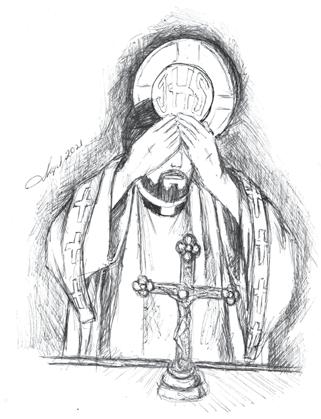
Hello. This is an immigrant from Venezuela. I came with my 9 year old son. Our story begins on March 10, 2024 when we decided to leave Venezuela leaving our family — my mother, father and sister. We arrived in Colombia on the 15th at Necocli, a place to get through the jungle. The jungle, called the Darien, is where we had to pay to pass through, and where we had to walk two and a half days to get to Panamá, where everyone arrives.
During those days that I came with my son, my sister, and my nephew, we started the jungle crossing. We had to pass a mountain of 14 hills where my sister stayed 3 hours behind. I would have to continue with my son alone. She stayed with the necessary things like food, water and water purification pills. Thanks to my God, we were able to leave and continue walking to get out of that jungle that was very desperate without food, only the little that was given to us, with blisters on our feet and an endless road. Then, we continued without stopping until some native people came out. They touched people in order to get what they were looking for and my companions warned me with signs that I should not go there with my son. I went swimming through the river with a lot of current. One man told them to shoot me, but as God was with me, his gun could not detonate. When I was a little farther away I heard the shot.
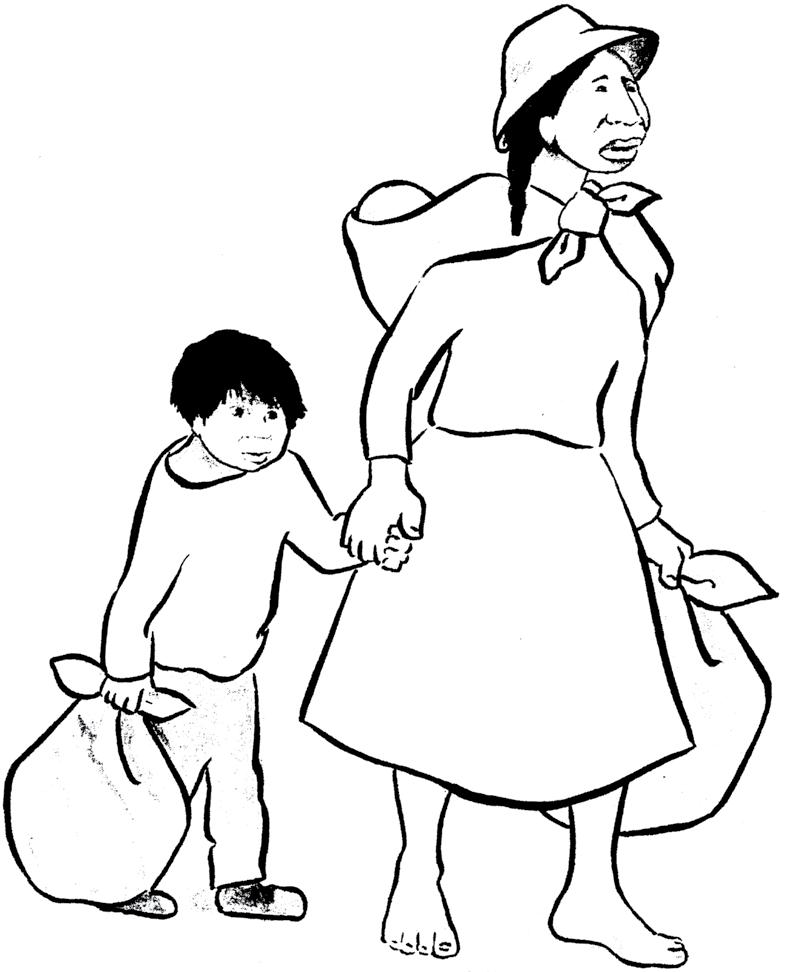
We kept walking to get out of the jungle and the next day we were able to leave. I waited there for my sister who was further behind, and then we went to Panamá, Costa Rica, Nicaragua, Honduras, Guatemala, and Mexico, walking, asking for help and food. When we arrived in Guatemala the police stopped us to take money from us; and since we didn’t have any, they touched our private parts to make sure we didn’t have anything. When they saw that we had nothing, they let us go. We went to Mexico in order to get to Mexico City. After walking for various days, we stayed on the coast at a place called Puerto Escondido, where we slept in the street. We worked selling candies at the streetlights to be able to gather enough to continue to the city. Then, I worked at an Oxxo, a grocery store, begging for food and help. There, I slept with my son for approximately 2 weeks to be able to gather the money. We continued to the city where I worked for 7 months and a half to be able to gather all of the money I could for my CBP One appointment. After waiting, thanks to my God, we got our long awaited appointment. We waited 19 days to be able to travel to the border of Hidalgo Reynosa and pass through to Texas. When we arrived on November 16, I was kidnapped along with my son and another person who had an appointment. Upon arriving at the airport and went to look for an uber, some people grabbed us and took us in a car. From there they brought us to their bosses, where they asked us for 3 thousand dollars for my son and me, and if we didn’t pay, they would not release us. As the days went by, my family was able to raise 70% of the money, for which they sold everything they had. But they could not help me more. The men told me what they could do with me if no one could pay for me anymore. I clung to God and humbled myself, asking him to soften the man’s heart so that he would release me and my son. Since we had been left without food, without bathing, and without sunlight, when from one moment to the next, the guy called me and said, “I am going to let you go”, I saw the glory of God, I cried and hugged my son. I was released at the entrance of the bridge, they left me two blocks from the bridge, and as best I could, I ran and entered. Thanks to my God I was able to get through and I am in this wonderful place. I thank my God because this is the second time he has given me another chance at life.


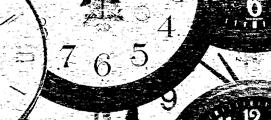

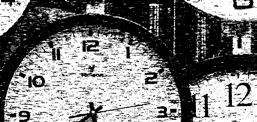
In Laudato Si Pope Francis presents the challenge to Catholics and others of good will:
“Economic powers continue to justify the current global system where priority tends to be given to speculation and the pursuit of financial gain…. Here we see how environmental deterioration and human and ethical degradation are closely linked. Many people will deny doing anything wrong because distractions constantly dull our consciousness of just how limited and finite our world really is.”
Laudato Si also brings out the teachings of other recent Popes on a call to change our lifestyles in order to save our world and our people:
“In I971 Saint Paul VI referred to ecological concern as “a tragic consequence” of unchecked human activity:”
“In his first encyclical Saint John Paul II warned that human beings frequently seem to see no other meaning in their natural environment than what serves for immediate use and consumption…. Every effort to protect and improve our world entails profound changes in ‘lifestyles, models of production and consumption, and the established structures of power which today govern societies.’”
“Pope Benedict XVI proposed eliminating the structural causes of the dysfunctions of the world economy and correcting models of growth which have proved incapable of ensuring respect for the environment.”
A song which has become well known in popular culture mocked the way Jesus was sometimes presented, giving the poor the impression that they should not worry about the harsh daily grind for their survival but rather put their hope in a heaven someday in the far future. Joe Hill, who wrote the song in 1911, was a labor leader at a time before labor unions were legal in the U. S. Here are some of the words from the song:
way to God, the way of the saints. The quote of Catherine about the Way provided the perspective for daily life at the Catholic Worker:
“Peter Maurin told us to reach the workers by the Works of Mercy. Counseling, consoling, comforting, holding out hope that ‘all the way to heaven is heaven,’ as St. Catherine of Siena said, go with the work of feeding, sheltering and clothing. Getting out a paper is part of this direct action—which is also to make people think.”
Catherine’s emphasis on the joy of living in the present with Jesus as the Way gave spiritual and theological support to the personalist Catholic
Jesus’ way was close to nature and to the lives of everyday people. In factories of the Industrial Revolution and with new technology, what the Modern Theology author calls “time keeping regimes” replaced living by the rhythms of the natural world and the cosmos and the words of the Gospel. Our whole economy was reorganized in order to quickly manufacture cheap goods. Workers were driven by clocks and doing everything faster. Enforcement of time-keeping regimens permeated factories, schools, prisons and hospitals in the eighteenth and nineteenth centuries as well as today. Peter Maurin criticized what he called the speed-up system in factories.
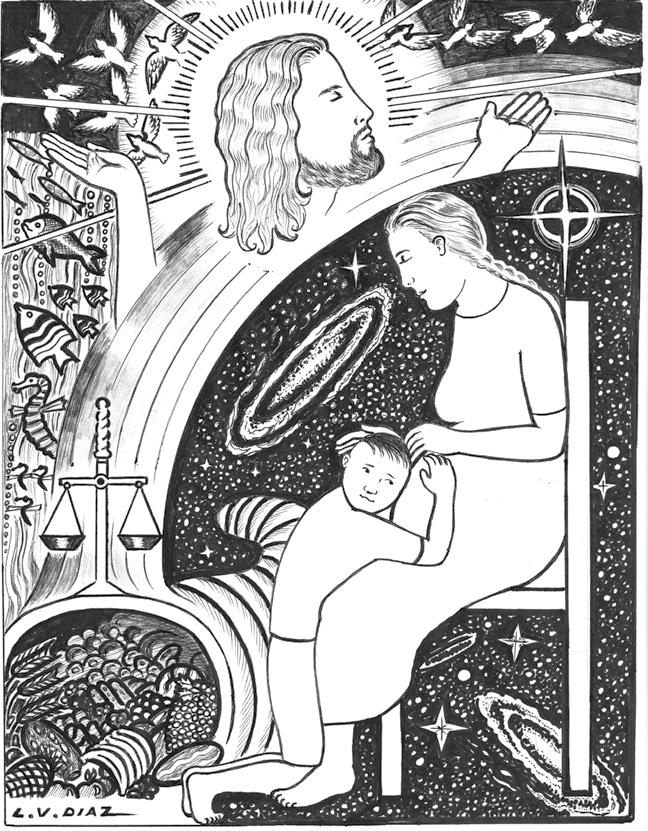
“From the day of your birth it’s bread and water here on earth, but there’ll be pie in the sky by and by when I die and it’ll be alright… He said if I do his will there’s a promise he’d fulfill And he’s gone now to prepare me a mansion up there And there’ll be pie in the sky.”
“All the way to heaven is heaven, because Jesus said, I am the Way.” Dorothy Day’s path was different. Over many years she quoted St. Catherine of Siena in her writings, emphasizing one particular saying: “All the way to heaven is heaven because He said ‘I am the Way.’” This statement was full of significance for Dorothy, as it was for Catherine. It relates to the ancient tradition of Jesus as the Way—the way to life rather than death, the way to redemption and eternal life, the way to love, the
Worker ideals of not only hoping and praying for heaven someday, but working to create a world “where it is easier for people to be good,” at the same time as living out the precepts of Matthew 25:31 ff. Catholic Worker Catholicism, like the religion of the saints, was not “pie in the sky when you die.” Dorothy later quoted Catherine about love of neighbor in this life:
“St. Catherine of Siena records our Lord as speaking to her thus: ‘I require of you that you love Me with that love wherewith I love you. I have set you in the midst of others…. You must love them with the love wherewith you love Me.’”
Today tight schedules and the push for efficiency and profit have even further accelerated the pace in factories and warehouses like Amazon and in doctors’ offices and hospitals. Workers are more efficient than ever, but the large profits from their work do not reach the workers, but rather enrich the people that Dorothy Day called robber barons.
Everything has to be done more quickly in the industrial and technical world, and this carries over into daily life. In some cases this replaces the idea of salvation Gjermundsen quotes Hartmut Rosa, “Whoever lives twice as fast can realize twice as many worldly possibilities.
Acceleration becomes a secular substitute for eternity, a functional equivalent for religious ideas of an eternal life and thus a modern response to death.” Rosa argues that our accelerated mode of living is simply eschatology in a new guise, the only replacement secular culture has to offer in place of a lost awareness of the eternal. The fast and efficient manufacturing of goods, however, has had lethal consequences. Awareness was slow to develop of the harmful effects of industrialization—the pollution of air and water, the changing climate of the natural world, the depletion of natural resources and the decrease in populations of creatures necessary for the world’s food supply (for example, bees who pollinate plants). These effects were not well understood until recent decades. Now that they are, the push in favor of unchecked economic “growth,” continues apace with its devastating consequences on ecology. As Gjermundsen puts it, “West-led global capitalism is resistant to giving up its hopeful vision of progress and slowing down its tempo of production.”
On Not Building Bigger Barns
There seems to be a paradoxical sense that suffering and death and the apocalypse might be avoided by working hard and efficiently and acquiring as much as possible while on this earth. Jesus’ words in the Gospel reveal a very different view. Jesus said, Do not build bigger barns to hold your wealth. Do not accumulate. Do not store up for yourselves treasures on earth, for where your treasure is, there your heart will be also.
“No one can serve two masters. You cannot serve both God and money.”
Look at the birds of the air; they do not sow or reap or store away in barns, and yet your heavenly Father feeds them. Are you not much more valuable than they?
“And why do you worry about clothes? See how the flowers of the field grow. They do not labor or spin.”
St. Maximus emphasized that Jesus’ words on the Kingdom ask us for a change of heart, a transformation now in God’s time.
Dorothy Day knew from her spiritual advisors and her spiritual reading that there is no time with God. For example, Dorothy prayed for those who had committed suicide (at a time when a suicide still could not receive Christian burial) because, she said, “there is no time with God”: it is never too late to pray for those who have died.
According to Gjermundsen, Maximus defines the very being of the Kingdom, the Eschaton, not as an event in external space and not in “conventionally agreed upon clock time.” Rather, for Maximus there is no path to eschatology separate from the soul’s path toward theosis (the transformative process toward likeness to or union with God).
For Maximus, “theosis and eschaton constitute the same event: when the horizon of the soul’s consciousness merges with the absolute horizon of divine being.”
The Modern Theology author cites Douglas Christie on the idea of “practicing paradise” here and now. Christie draws on the early Christian contemplative monastic tradition of the Desert Fathers “to show how paradise, or the Kingdom, can be understood as an experiential reality fully inhabitable on Earth through the soul’s inner work of purification, simplification and sanctification of heart, senses, and way of life.”
On this view, the Kingdom “is going-on-beingrealized in the lifeworlds of persons who, through inner work and devotion, learn to attune themselves to the always already whole and holy beauty of the created world. Christie argues that such a practice and view is key to countering both the otherworldliness of much Christian eschatological thought, as well as the ‘secular expressions of hope that promised an illusory paradise on earth.’” Maximus wrote: “The text, ‘The Kingdom of Heaven has drawn near’ (Matt 3:2; 4:17) does not in my judgment contain any temporal limitation. For the Kingdom does not come in a way that can be observed: one cannot say, ‘Look, it is here’ or ‘Look it is there’ Luke 17:20-21). For ‘the Kingdom of God’, says Scripture, ‘is within you’ (Luke 17:21).
The Kingdom of God the Father is present in all believers in potentiality; it is present in actuality in those who, after totally expelling all natural life of soul and body from their inner state, have attained the life of the Spirit alone and are able to say, ‘I no longer live, but Christ lives in me’ (Gal 2:20).
This is not done alone. Gjermundsen reminds also us of the importance of the liturgy for Maximus.: “The individual’s inner work of coming to see the true nature of reality with purity of heart is for Maximus never separate from the communal liturgical work of the Divine Liturgy… the enacting of the Kingdom in the communal web of human relations must involve a metamorphosis in the individual human heart, from where ‘will flow rivers of living water.’ (John 7:38).”
Gjermndsen emphasizes that conversion of heart brings healing results for the world today: “From the transfigured hearts and minds, compassionate, righteous and beautiful actions tend to come forth as spontaneous expressions of virtuous divine working, contributing to weaving a world of peace and harmony. So the degree to which one’s being is transformed is the degree to which the motivational source of one’s actions stops being the will of the old self—with its questionable motives and drives, including even some of the altruistic ones—and becomes instead God’s will.”
During his visit to Corsica in December of 2024 Pope Francis reminded us that the Lord is near. Vatican News reported his words:
“There are many reasons for sorrow and despair in today’s world”, he said, listing ‘extreme poverty, wars, corruption and violence.’ Nevertheless, he continued, the word of God never fails to encourage us. Despite the suffering, “’he Church proclaims an unshakable hope that does not disappoint,’ for the Lord is near, and in His presence, we find the strength to work for peace and justice. Joy in Christ, the Pope concluded, remains the source of our joy ‘in every time and amid every affliction.’”
In his talk to the Roman Curia at the end of the year, our Holy Father showed us that as members of the Body of Christ here and now we can help to fill the earth with God’s blessing:
“We can think of the Church as a great river that branches off into a thousand and one streams, torrents, rivulets – a bit like the Amazon basin – to water the entire earth with God’s blessing, flowing from the Paschal Mystery of Christ.”
References: Gunnar Gjermundsen, “Living on This Earth as in Heaven: Time and the Ecological Conversion of Eschatology,” Modern Theology 404, October 2024 (Open access_). Pope Francis. Encyclical Laudato Si.
